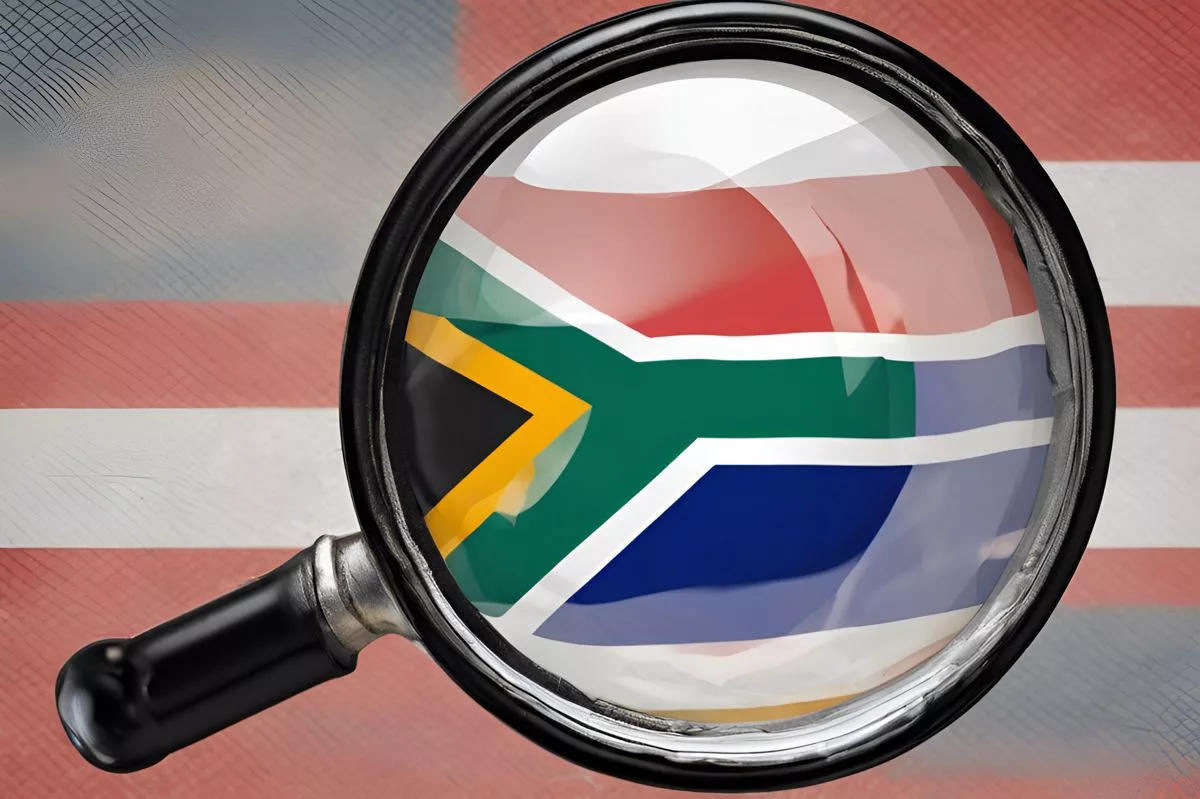The General Intelligence Laws Amendment Bill in South Africa has raised concerns due to its vague language and potential threat to citizens’ rights and privacy. Public hearings in Mpumalanga gave attendees the opportunity to voice their worries and suggest stronger supervision systems to protect against undue surveillance and intrusion. The bill’s clarification of essential terminology was a key issue, along with the potential suppression of opposition and the importance of whistleblowers. The conclusion of the public hearings marks the beginning of comprehensive deliberations on the bill, highlighting the power of public participation in shaping legislation.
What are the concerns surrounding South Africa’s General Intelligence Laws Amendment Bill?
Critics have raised concerns about the vague language in the bill and the wide-ranging surveillance latitude it advocates, potentially threatening citizens’ rights and liberties. The bill’s present form also authorizes state intervention and a gradual erosion of privacy, leading to suggestions for strong supervision systems to protect individuals and groups from undue surveillance and intrusion. Attendees recognized the importance of powerful intelligence services but stressed the need for precise definitions of essential terminology to avoid arbitrary interpretations and potential misuse of authority.
A Milestone in South African Legislation
In the core of Mpumalanga, an important period in South Africa’s law-making saga reached its conclusion. The Special Committee handling the General Intelligence Laws Amendment Bill wrapped up their public hearings, stationed at the Mayor’s Parlour in the Gert Sibande District Municipality. A crowd of around 157 civilians commemorated this event, each adding their unique perspectives to the bill’s developing story. Their statements, their anxieties, and their proposed suggestions enriched the ongoing conversations about the bill and the potential ripple effects it could have on South African society.
The Bill’s Concerning Ambiguities
The bill, deeply entrenched in the intricate language of law, stirred up questions due to its semantic vagueness. Doubts surfaced from the wide-ranging surveillance latitude it appeared to advocate and the excessive powers it generously delegated to the intelligence services. Critics perceived these factors as potential threats to the precious rights and liberties of South African citizens.
Debate participants argued that the crux of the issue resided in the clarification of essential terminology. Terms like “threat” and phrases such as “person or institution of national security interest” required precise definition. This precision, they suggested, would counteract arbitrary interpretations and potential misuse of authority.
Potential Threats to Privacy
Yet, a further complication was the prospective vetting of organizations. In its present form, the Bill seemed to authorize state intervention, gradually diminishing privacy. It also possessed the potential to suppress opposition, thereby undermining the democratic spirit of South African society. Suggestions thus highlighted the importance of strong supervision systems. These would uphold the accountability of the intelligence services, protecting individuals and groups from undue surveillance and intrusion.
The conversation was not solely criticism and fear. Attendees recognized the importance of powerful intelligence services. They underscored their role in ensuring community safety, acting as a preventative measure for potential unrest similar to the incidents in July 2021.
The Role of Whistleblowers
Furthermore, the submissions exhibited a firm resolve to protect whistleblowers. Participants concurred that such persons were essential to the security services. Their intel from communities could be critical in strengthening the country’s safety.
The Road Ahead
This gathering signified the conclusion of the regional public hearings process on the General Intelligence Laws Amendment Bill. It concluded a sequence of comprehensive public engagements that spread across Limpopo, Gauteng, Western Cape, KwaZulu Natal, and Mpumalanga.
The hearings’ voyage, which took off on 22 January 2024, in Musina, Limpopo, eventually came to a halt in the Gert Sibande District, Mpumalanga. As this era concludes, another is preparing to commence. The committee will now proceed to welcome additional oral submissions from chosen stakeholders, preparing the groundwork for comprehensive deliberations on the Bill. As these proceedings progress, the public is encouraged to stay updated on future proceedings on Parliament’s various social media channels.
The Power of Public Participation
In a world where legislation is increasingly intertwined with daily life, such involvement is crucial. It stands as a symbol of the vitality of a democratic society, demonstrating the influence of public participation in moulding the legislative framework of a nation. This public engagement pledges to contribute to a dynamic and balanced Intelligence Laws Amendment Bill. One that respects the values of South African society while securing its safety.
1. What are the concerns surrounding South Africa’s General Intelligence Laws Amendment Bill?
Critics have raised concerns about the vague language in the bill and the wide-ranging surveillance latitude it advocates, potentially threatening citizens’ rights and liberties. The bill’s present form also authorizes state intervention and a gradual erosion of privacy, leading to suggestions for strong supervision systems to protect individuals and groups from undue surveillance and intrusion.
2. What was the conclusion of the public hearings on the General Intelligence Laws Amendment Bill in Mpumalanga?
The public hearings on the General Intelligence Laws Amendment Bill in Mpumalanga concluded, marking the beginning of comprehensive deliberations on the bill. The committee will now proceed to welcome additional oral submissions from chosen stakeholders, preparing the groundwork for these deliberations.
3. What was the main issue raised during the public hearings on the General Intelligence Laws Amendment Bill?
The main issue raised during the public hearings on the General Intelligence Laws Amendment Bill was the need for precise definitions of essential terminology to avoid arbitrary interpretations and potential misuse of authority. Attendees recognized the importance of powerful intelligence services but stressed the importance of avoiding language ambiguity in the bill.
4. What potential threats to privacy were identified in the General Intelligence Laws Amendment Bill?
The General Intelligence Laws Amendment Bill in its present form seemed to authorize state intervention, gradually diminishing privacy, and possessing the potential to suppress opposition, thereby undermining the democratic spirit of South African society. Strong supervision systems were suggested to uphold the accountability of the intelligence services, protecting individuals and groups from undue surveillance and intrusion.
5. What was the role of whistleblowers in the General Intelligence Laws Amendment Bill public hearings?
Participants in the General Intelligence Laws Amendment Bill public hearings expressed a firm resolve to protect whistleblowers, recognizing their essential role in the security services. Their intel from communities was deemed critical in strengthening the country’s safety.
6. Why is public participation crucial in shaping legislation in a democratic society?
Public participation in shaping legislation is crucial in a democratic society, standing as a symbol of the vitality of such a society. The power of public participation in molding the legislative framework of a nation was demonstrated in these public hearings, and it pledges to contribute to a dynamic and balanced Intelligence Laws Amendment Bill that respects the values of South African society while securing its safety.








